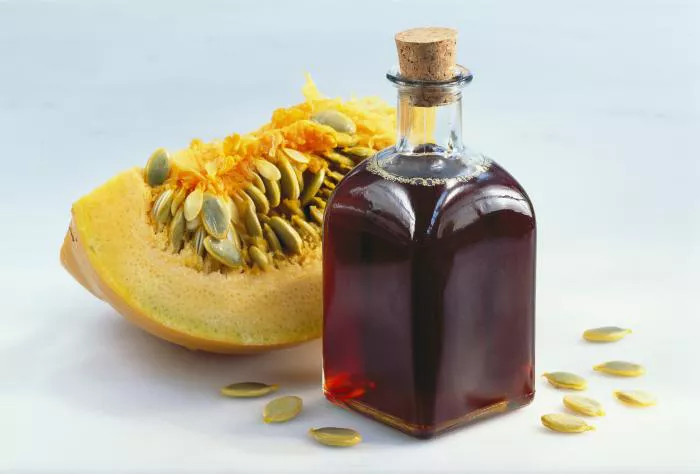Pumpkin seed oil is often overshadowed by more popular hair growth oils like rosemary, but it deserves its place in the spotlight. Packed with essential fatty acids, vitamins, and phytosterols, pumpkin seed oil promotes hair and scalp health. Research suggests it may even help address certain forms of hair loss.
Here’s a deep dive into the benefits of pumpkin seed oil for hair growth and expert advice on how to use it effectively.
Benefits of Pumpkin Seed Oil
Pumpkin seed oil is rich in nutrients that support hair health in multiple ways:
Supports Hair Follicle Health
The essential fatty acids found in pumpkin seed oil, particularly omega-3s, play a key role in maintaining healthy hair follicles. Dr. Hadley King, a dermatologist, explains that these fatty acids help improve skin barrier function and reduce inflammation, which can foster a healthier scalp environment. A deficiency in fatty acids can lead to hair loss, so incorporating them through oils like pumpkin seed can be beneficial.
Strengthens Hair
Fatty acids not only nourish the scalp but also strengthen hair strands. Penny James, a trichologist, notes that pumpkin seed oil can help reduce breakage and split ends by providing the necessary building blocks for stronger, more resilient hair.
May Reduce Hair Loss
Pumpkin seed oil has been studied for its potential role in reducing hair loss. One major factor in hair thinning is the hormone dihydrotestosterone (DHT), which causes hair follicles to shrink. The phytosterols in pumpkin seed oil may inhibit the enzyme 5-alpha reductase, responsible for converting testosterone to DHT, thus helping to mitigate hair thinning and shedding.
May Support Hair Growth
Pumpkin seed oil contains omega-6 fatty acids, which promote scalp hydration, and vitamin E, which improves circulation to the scalp—both essential for hair growth. Studies have shown promising results, such as a 2014 study where men who took pumpkin seed oil supplements experienced a 30% increase in hair growth compared to the placebo group.
Side Effects
While pumpkin seed oil is generally well-tolerated, it can cause mild irritation in some cases. James advises using it sparingly to avoid redness or an itchy scalp. People with oily roots or conditions like rosacea should avoid using pumpkin seed oil topically. If you’re allergic to pumpkins, steer clear of this oil altogether.
Hair Type Considerations
Pumpkin seed oil is versatile and can benefit all hair types, but results may vary. As trichologist Sophia Emmanuel points out, factors like individual health, diet, and the underlying causes of hair loss influence the oil’s effectiveness.
How to Use Pumpkin Seed Oil for Hair Growth
Ingest It
Consuming pumpkin seed oil, either in its pure form or as part of a supplement, may support hair growth from within. However, Emmanuel advises consulting with a healthcare professional before adding supplements to your routine, as they can discuss potential side effects and ensure it aligns with your specific health needs.
Apply It Topically
For a more localized effect, apply pumpkin seed oil directly to the scalp. Warming the oil slightly before massaging it into the scalp can enhance absorption. Alternatively, look for hair care products that include pumpkin seed oil in their formulation.
The Takeaway
Pumpkin seed oil’s combination of fatty acids, vitamins, and phytosterols makes it a promising option for promoting scalp health and potentially reducing hair loss. However, its efficacy can vary depending on individual factors, and more comprehensive studies are needed to confirm its long-term benefits. Before using pumpkin seed oil for hair growth, consult with a professional to rule out underlying causes of hair loss and determine the best course of action.


